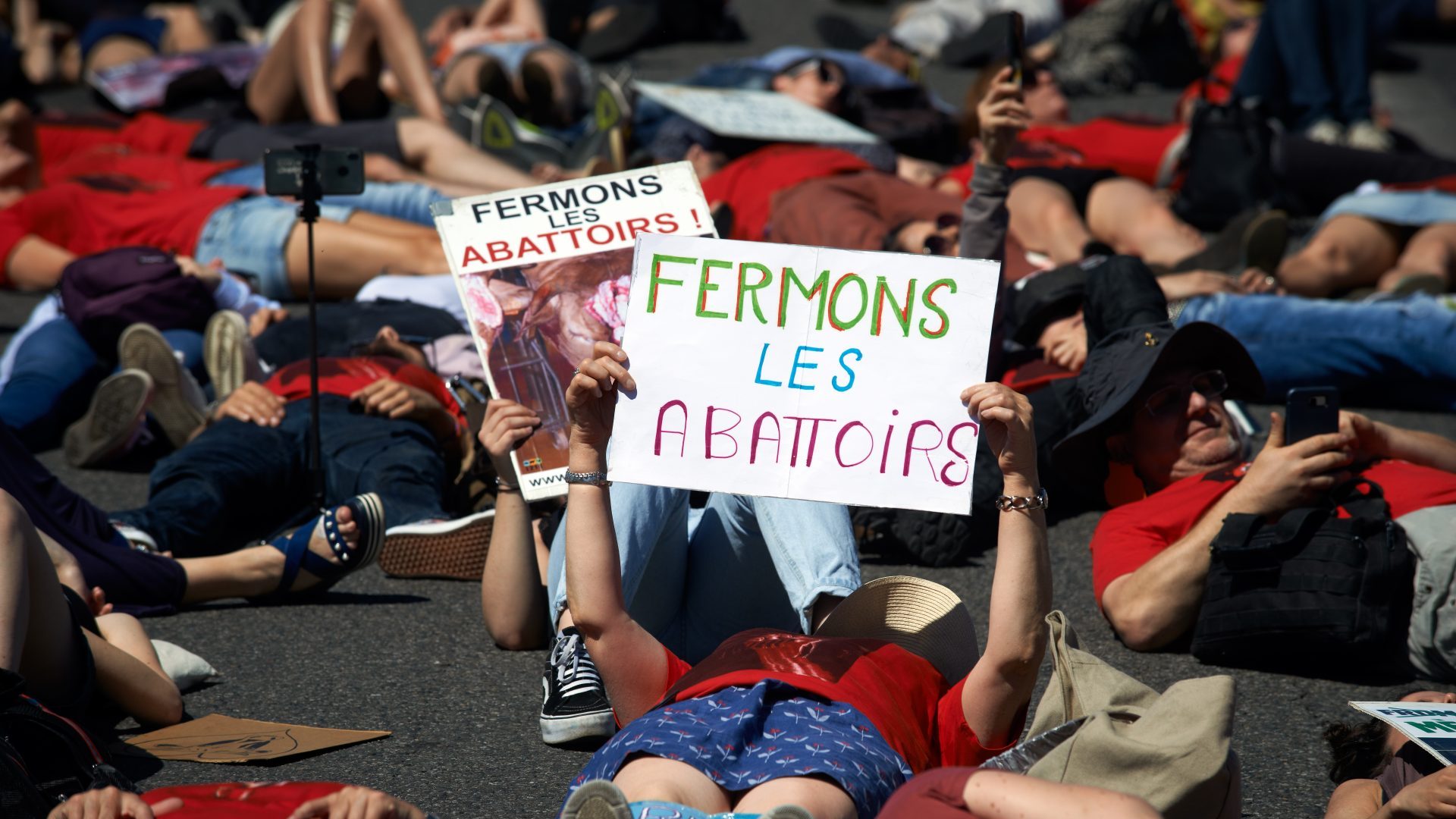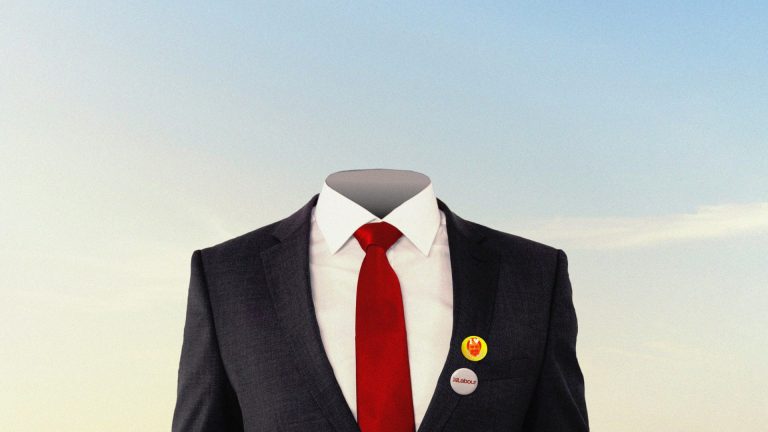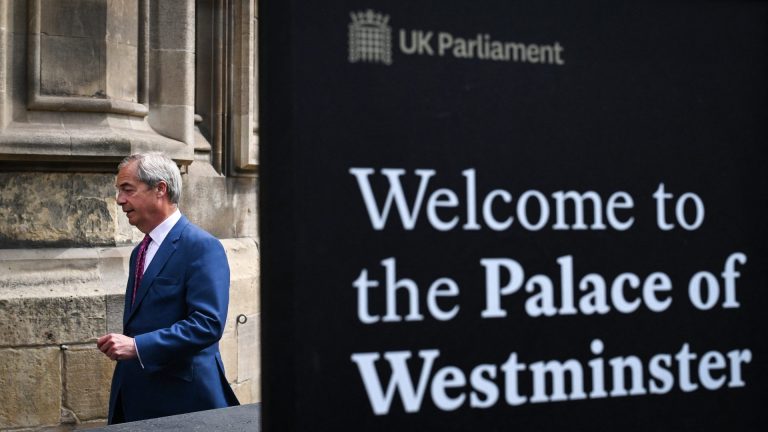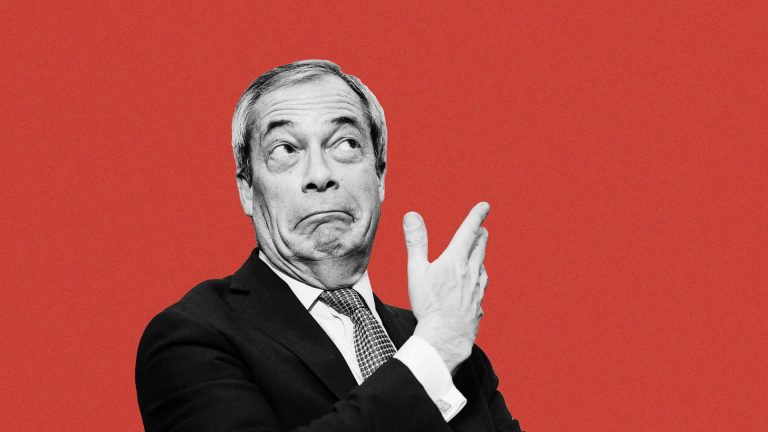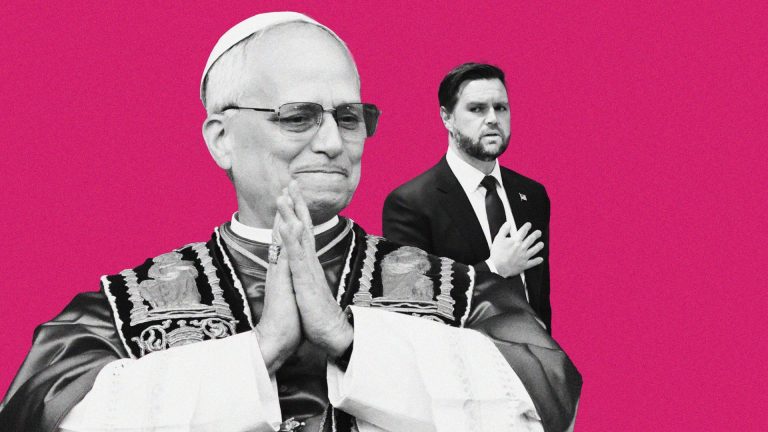France is a state in turmoil. The old certainties are no longer certain. Centuries of tradition could soon be wiped away.
And all this has nothing to do with Macron, Le Pen or party politics. It is to do with the idea that le cancel culture is coming for the nation’s steaks… or so the meat industry and its cheerleaders would have you believe.
In his recently released book Pro Steak, philosopher and writer Jean-Claude Poizat sets out the case for eating meat in (what he sees as) a woke world order that is increasingly determined to shove soy nuggets down people’s throats. He says he wrote the book with “a certain awareness that I was going against the dominant discourse on the subject”.
Never mind that little over one per cent of France’s population is vegan. Never mind that animal agriculture benefits handsomely from subsidies. In Poizat’s world, Big Meat is a beleaguered underdog and the tofu-eating wokerati are poised to land the killer blow.
“There comes a time,” Poizat said dramatically in a TV interview in April, “when you must pick a side.” After a pause, he spelled it out: “Are you no steak or pro steak?”
So, where do the two sides stand?
In the red corner are traditionalists, gourmands and self-styled defenders of France’s rural heritage. In their telling, meat plays an essential role not just for physical sustenance but also in shaping national identity. How can a country famous for foie gras forego such delicacies in favour of legumes?
In the green corner are environmentalists, health-conscious consumers and animal lovers. They see a brighter future for a world free from the cruelties and inefficiencies of animal agriculture. They urge government action in response to the climate crisis. Some of them just enjoy a seitan fillet.
It was broadcast journalist turned politician Aymeric Caron who fired the first shot in France’s steak wars in 2013. His book, No Steak, set out the case for ending France’s meaty culture – and with it the exploitation of billions of farmed animals every year.
Since then, veganism in France has gone from fringe to slightly less fringe. Estimates vary wildly but one study suggests as many as seven per cent of 18 to 19-year-olds might now be vegan.
Even ardent omnivores are increasingly aware of the need to eat more plants. Born into a society that normalises and promotes meat, many are belatedly learning about its environmental, ethical and health costs.
Enter Poizat. His arguments relate not to the practicalities of food production, but the philosophical stakes of controlling what people eat. For him, talk of restricting people’s diets breaches liberal and democratic values. Liberté, égalité, steak haché.
While many of Poizat’s claims are exaggerated, his book certainly arrives at a tense moment in the battle for the future of food in France.
Farmers’ protests have erupted across Europe partly in response to plans for a green transition. Meanwhile, the planet has experienced a new global temperature record for 11 consecutive months. This incendiary atmosphere is fertile breeding ground for a culture war showdown over what we eat.
“In France, we eat to live,” says Alexandra Coché, Food Division Manager at L214, an animal advocacy group. The French are well known for sitting down for hours to savour a meal. Swapping body parts for plants doesn’t threaten this tradition, Coché says. Indeed, in a multicultural and divided country, “plant-based food can bring people together around the same table”.
Veganuary, a plant-based eating challenge that started in the UK in 2014, has grown rapidly in France in recent years. “People need to try plant-based food to find out it’s actually really good,” Coché explains. Seven in 10 Veganuary participants drastically reduce their meat consumption after the month-long challenge, she points out.
From steak to sushi, more and more traditional animal-based dishes are being veganised. One of L214’s current campaigns aims to show how easy and enjoyable it can be to choose a plant-based barbecue. “It’s about removing some stereotypes,” says Coché. Then people can see that the vegan option is not so different to the food they know and love.
After years of having an easy ride, meat and dairy are now getting a grilling for their environmental impacts.
“As well as killing billions of innocent animals, raised in extreme cruelty, our meat consumption is threatening the very conditions that allow life on this planet,” says Jean-Marc Gancille, the conservationist and author of Comment l’humanité se viande (roughly How humans are tripping themselves up over meat).
Climate scientists have come to a broad consensus that meat and dairy are having a negative impact on the planet. Animal agriculture is responsible for almost 60 per cent of total food greenhouse gas emissions (GHG) and at least 16.5 per cent of all global GHG emissions.
Farmed animals also take up almost 80 per cent of global agricultural land, despite providing only 17 per cent of the world’s calories. This destroys precious carbon stores through deforestation and threatens vital ecosystems for countless species, Gancille notes.
Despite abundant evidence, humans are still in “widespread denial of the enormous environmental costs of our excessive meat consumption”, he adds.
This denial is multi-faceted. A recent study found that one in four French people think that eating meat “makes no sense in the modern world”. Almost six in 10 say that they are eating less meat.
Yet, meat-industry marketing has convinced many that plant-based meat is an ultra-processed, planet-wrecking, job-destroying demon food. That tastes like merde.
A new wave of tech companies is trying to have a positive environmental impact while bypassing the culture wars.
Edonia, a plant-based protein innovator, is one such example. The start-up has just raised two million euros to scale up its microalgae technology. The company sells its unique spirulina product directly to businesses, who can then use it as an ingredient in burgers and bologneses.
“There are three things that people are looking for in a meat alternative,” says Hugo Valentin, one of Edonia’s three co-founders. “Taste, nutritional performance and level of processing.” According to Valentin, “Edonia tastes great, scores highly on nutrition and is minimally processed”.
The start-up has sidestepped political point-scoring because it does not attempt to replicate exactly the taste of meat. “We want to modestly offer another source of protein,” Valentin explains, “we’re not saying that everyone should only eat microalgae.”
While Edonia offers a glimpse of the patchwork of proteins that could contribute to a plant-based future, for now the odds remain stacked firmly in favour of Big Meat.
“The balance of power is very one-sided,” says Gancille. The French government is “leading the way with its irrational support for intensive agriculture,” he adds.
Farmers have an unusual amount of power in French politics due to the influence of agricultural chambers and a wide network of farmers elected as local politicians. Just as the idealised image of toiling farmers tending to their animals holds sway in the public imagination, France’s powerful agricultural syndicates hold real sway in helping to set government policy.
Combined with the EU’s flagship common agricultural policy (CAP), which takes up about a third of the bloc’s total budget and spends most of it on subsidies for animal farmers, the political will to transition away from meat is not yet there.
Valentin notes that Edonia has benefitted from government start-up funds as part of France 2030, a national funding initiative that aims to foster the “third agricultural revolution”.
Yet, EU governments are holding back their own revolution. As recently as 2020, the European Commission spent 3.6 million euros on a three-year campaign promoting beef.
Beyond beefing up beef, the French government has also tried its hand at hampering vegan ham.
Instead of wrangling with complex questions about food security and sustainable food systems, France is one of a bevy of European countries cracking down on the use of meaty names for meat-free products.
In February, the government published a decree with the names of 21 terms that plant-based producers could no longer use on their labels. Sticking “steak”, “jambon” or “escalope” on a packet of plant-based meat could land French companies with fines of up to 7,500 euros. The decree has since been suspended for a second time for fears it may be illegal.
As climate signals move further off the scale, such resistance to a potential solution is foolhardy, says Gancille. He implores environmentally minded and progressive types to be “more coherent and take the consequences of meat-eating seriously”. He also wants the government to do more. “We won’t change our cultural frames of reference without the massive involvement of civil society and honest, courageous governments,” he says.
Poizat’s reactionary views on meat are not at risk of extinction in France, though like a right wing host raving on his hit Fox show that white men have no platform, Poizat claims to be the last bastion of bifteck – while living in a meat-obsessed country.
The idea that the only thing holding together France’s democracy is a morsel of butchered cow is as concerning as it is surreal. Diverse plant-based protein innovators show that consumers will continue to have plentiful choice, while efforts to stifle vegan meats seem to put the pro-steakers on the anti-liberal side.
Poizat is right though that farmers should be at the forefront of all future plans for sustainable food. In a country where a farmer dies by suicide every other day, the current status quo is clearly not working.
Building a fairer food system in France will involve serious discussions about the burdens placed on farmers and the planet – not inflammatory culture-wars rhetoric that conflates democracy with dead animals.

